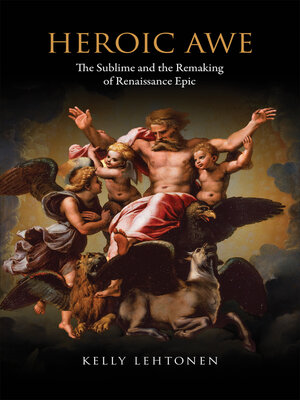
Sign up to save your library
With an OverDrive account, you can save your favorite libraries for at-a-glance information about availability. Find out more about OverDrive accounts.
Find this title in Libby, the library reading app by OverDrive.



Search for a digital library with this title
Title found at these libraries:
| Library Name | Distance |
|---|---|
| Loading... |
During the Renaissance, the most renowned model of epic poetry was Virgil's Aeneid, a poem promoting an influential concept of heroism based on the commitment to one's nation and gods. However, Longinus' theory of the sublime – newly recovered during the Renaissance – contradicted this absolute devotion to nation as a marker of religious piety. Heroic Awe explores how Renaissance epic poetry used the sublime to challenge the assumption that epic heroism was primarily about civic duty and glorification of state.
The book demonstrates how the significant investment of Renaissance epic poetry in Longinus' theory of the sublime reshaped the genre of epic. To do so, Kelly Lehtonen examines the intersection between the Longinian sublime and early modern Protestant and Catholic discourses in Renaissance poems such as the Gerusalemme Liberata, Les Semaines, The Faerie Queene, and Paradise Lost. In illuminating the role of Longinus along with that of religious discourses, Heroic Awe offers a new perspective on epic heroism in Renaissance epic poetry, redefining heroism as the capacity to be overwhelmed emotionally, psychologically, and spiritually by encounters with divine glory. In considering the links between religion, the sublime, and epic, the book aims to shed new light on several core topics in early modern studies, including epic heroism, Renaissance philosophy, theories of emotion, and the psychology of religion.







